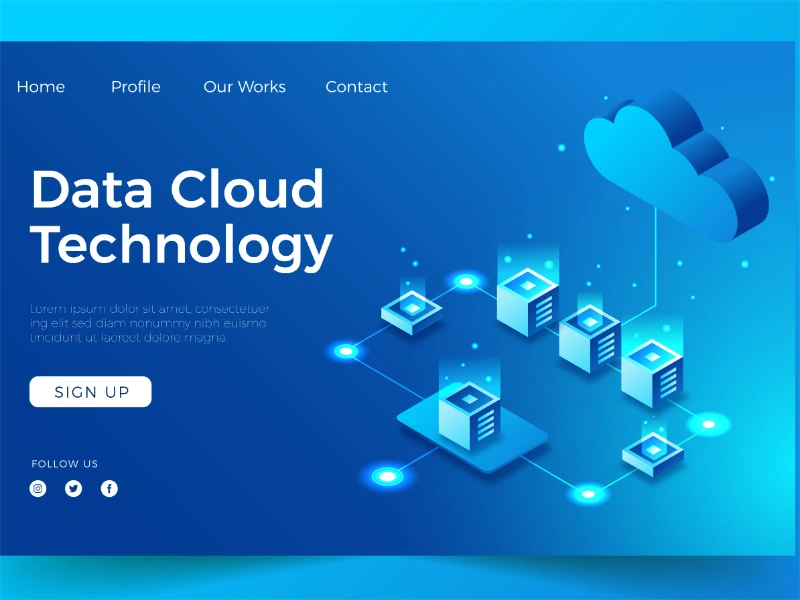- A data cloud is a cloud-based infrastructure that provides openness and supports the availability, integration, portability, and security of enterprise data.
- A data cloud’s key features include discoverable data, agile data architecture, and integrated AI/ML capabilities for innovation.
This article will introduce the definition, examples and working principles of data cloud.
What is data cloud?
A data cloud is a cloud-based infrastructure that provides openness and supports the availability, integration, portability, and security of enterprise data. It offers a comprehensive and established approach to cloud computing, delivering compute, storage, delivery, and advanced analytics capabilities on demand. This empowers organisations to leverage their data effectively for driving transformation and creating value.
The challenge of data transformation is exacerbated by isolated systems that require significant effort and resources for maintenance and management. Many businesses struggle with the speed of data ingestion needed to achieve data intelligence. Additionally, integrating data for new insights or making it accessible and shareable to relevant stakeholders can be complex tasks for some organisations.
Also read: A look at cloud data management (btw.media)
Also read: AMD is investigating a suspected data breach crisis (btw.media)
Examples of data cloud
Here are a few examples illustrating how organisations utilise Data Cloud to enhance customer experiences:
1. Formula 1 enhances fan satisfaction by personalising experiences based on location, content preferences, and favourite drivers. They have developed near real-time fan journeys featuring unique experiences and exclusive offers, fostering meaningful interactions to convert new fans into loyal followers and sustain global growth. Results include 88% fan satisfaction, 86% first contact resolution, and a 99.6% email delivery rate.
2. Air India has streamlined case handling, optimised routing, and provided personalised customer experiences using Data Cloud and Einstein. With AI-driven reply recommendations and predictive AI, agents deliver prompt assistance and personalised suggestions.
3. Turtle Bay, a luxury holiday destination on O‘ahu, has implemented Data Cloud to segment customers into targeted personas. Einstein Copilot then tailors recommendations accordingly; for instance, suggesting family-friendly activities to guests classified under family personas.
How does data cloud work?
A data cloud is not a product that can be purchased off the shelf. Instead, it consists of various components and capabilities designed to offer adaptable, scalable data solutions and integration. Data clouds can be tailored to specific requirements to help achieve business objectives. Typically, most data clouds incorporate the following features:
1. Discoverable data
It’s crucial for an organisation’s data to be easily accessible and interpretable by various user groups. A data cloud consolidates structured, unstructured, or semi-structured data to simplify data discovery and reduce complexity. This involves collecting, ingesting, and processing data from multiple on-premises or cloud-based source systems and centralising it in one location.
2. Agile data architecture
Data clouds rely on architectures like data warehouses or data lakes to store data collected from source systems. The choice of data architecture depends on specific needs, with the ability to leverage other cloud-based data services and integrations such as cloud database engines, data pipelines, and APIs.
3. Integrated AI and machine learning
Intelligent features such as self-service analytics, AI, and machine learning contribute to saving time and effort while fostering innovation. Data clouds provide automation and advanced toolkits that facilitate the integration of AI/ML and data science into business processes and decision-making contexts.

